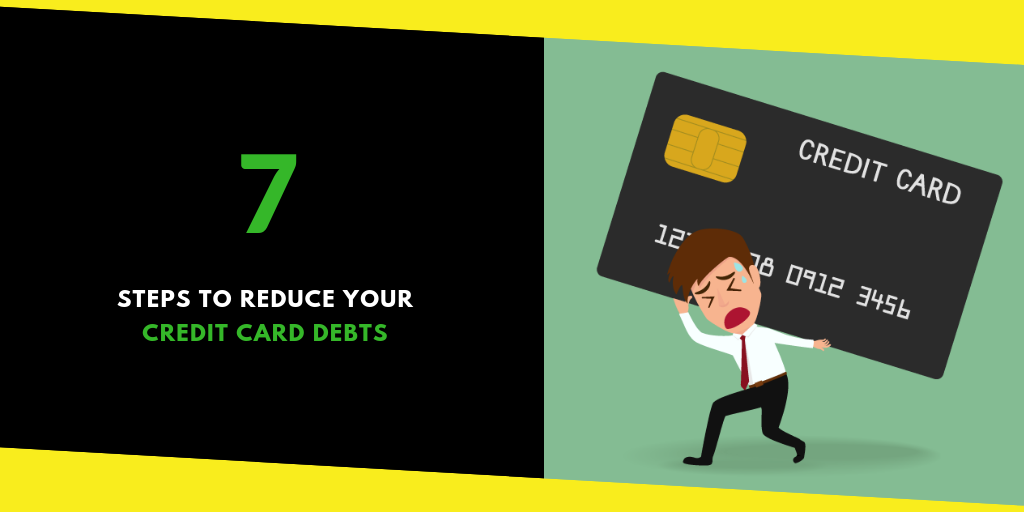7 Steps To Reduce Your Credit Card Debts
This post was last updated on March 24th, 2025

In this era where most of our daily transactions are executed via credit cards, we are constantly being burdened with debt, which is further aggravated with the associated interest charges. Carrying debt not only creates hurdles in current spending decisions but also hampers future saving plans.
Paying off these debts seems to be an arduous task and if you don’t want to involve others for planning your debt reduction strategies, here are 7 steps to reduce credit card debts that can guide you to smartly manage your debts without causing a drain on your savings:
1. Track Your Debts
The very first step involves determination of how much you owe to your creditors. Start by making a master list of your monthly credit card and loan statements. Your list must include the creditor’s name, amount owed to the creditor this month, minimum payment to be made on that bill, rate of interest and payment due date.
2. Analyse Your Capacity To Pay
In order to analyse your capacity to pay you must subtract from your monthly disposable income items like – expenses on rent, car fuel, food, utilities, insurance premiums and minimum payments on debts. Also subtract miscellaneous expenses like regular shopping or entertainment charges. The remaining amount will give you a clear picture of how much you can give up for payment of your credit card bills.
3. Call Your Creditors For Negotiation
This is in fact one of the critical steps to reduce credit card debts. Once you have tracked your debts and analysed how much you are capable of paying, just pick up the phone and call your creditors to explain your situation. Request for interest rate reduction and your creditors may show interest on lowering the rates or waiving the late fees. You may also reduce the interest rate by transferring one of your high interest credit card debt into a new credit card having lower interest rate.
4. Prioritise Your Debts
Now it is time to make some real payments. Start with the bill carrying high interest rate or one having the smallest balance. Giving priority to debt having high interest rate can help you save more money as the most income draining debt will get settled earlier. Also paying off the debt with smallest balance can help in eliminating a bill faster, which can prove as a motivation to clear further debts. But ensure that you make the minimum monthly payments on all your debts.
5. Draft Your Payment Path For Debt Minimisation
Once you have prioritised your debts, the next step to reduce credit card debts is to draft a payment path. While you make minimum balance payment for each debt, put more money towards your target bill so that you can pay it off faster. Once one bill gets settled, direct your funds towards the next and continue to do so as you gain momentum as well as more disposable income to pay off rest of the credit card bills.
6. Smartly Manage Your Funds
Direct your holiday bonus or leave encashment funds to pay off your prioritised debt. Moreover, make small compromises in your daily routine to keep saving funds regularly. Reduce your outside dining trips, ride bike for nearby locations, sell off things stored in the attic, postpone big purchases, etc. If you start managing your funds smartly and on regular basis, you will definitely have more savings at the end of the month.
7. Discourage Impulsive Use Of Credit Cards
Once you start paying off your credit card bills, you may feel relieved and even motivated to reward yourself with a new smartphone or a dinner at an expensive restaurant. But such impulsive expenditure can destroy all the sacrifices you made for a long time. Instead make payments with cash or debit card and think twice before indulging in any new debt.
You may like this
Recommended For You
Financial Skills We All Need To Know
Snehashree Bhat
A young writer who loves to pen words from creative perspective. Passionate internet surfer, a versatile homemaker and a person who finds pleasure in adopting healthier and positive changes in her persona. An enthusiastic feminist who wishes to make serious changes in the stereotypical thought process of the society via the voice of her words.




